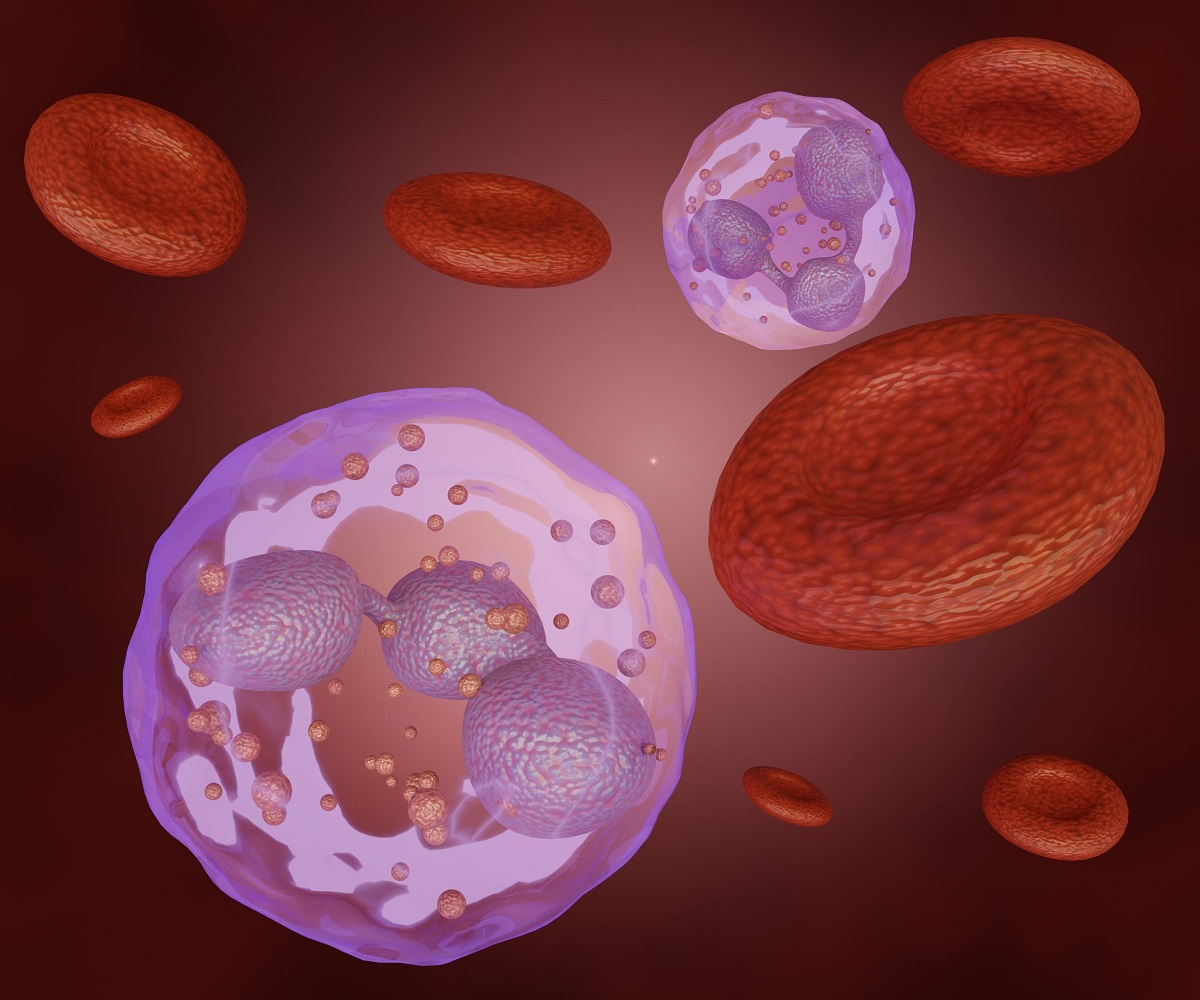KEY TAKEAWAYS
- The study aimed to investigate how active heme metabolism suppresses macrophage phagocytosis in UEC via the TLR4/IFN pathway.
- Researchers concluded that active heme metabolism in UEC inhibits macrophage phagocytosis, aiding immune escape.
Uterine endometrial cancer (UEC) is a common gynecological estrogen-dependent carcinoma, often associated with intermenstrual bleeding. Active heme metabolism is increasingly recognized for its significant role in various diseases, particularly cancers.
Tumor-associated macrophages (TAMs) constitute the predominant immune cells within the microenvironment of UEC, yet the influence of heme metabolism on the interaction between UEC cells (UECCs) and macrophages remains poorly understood.
Xing Zhang and the team aimed to assess the impact of active heme metabolism on the crosstalk between UECCs and TAMs, specifically examining its effect on suppressing macrophage phagocytosis through the TLR4/IFN signaling pathway and CD36 expression.
Researchers performed an inclusive analysis utilizing the TCGA database and conducted an integration analysis of the protein-protein interaction (PPI) network, alongside RNA transcriptome sequencing of patient samples.
The expression levels of both heme-associated molecules and iron metabolism-related molecules were measured using quantitative real-time polymerase chain reaction. Heme levels were detected through a dehydrohorseradish peroxidase assay.
Additionally, immunohistochemistry, phagocytosis assays of macrophages, immunofluorescence staining, intracellular ferrous iron staining, and enzyme-linked immunosorbent assays were conducted to further explore the interactions and effects within the tumor microenvironment.
About the results, it was verified that heme accumulation in UECCs is significantly higher compared to endometrial epithelium cells. Low expression of succinate dehydrogenase B, regulated by estrogen, contributes to the overproduction of succinate and subsequent heme accumulation in UECCs.
More importantly, excessive heme in UECCs impairs macrophage phagocytosis through the regulation of CD36. Mechanistically, this impairment is dependent on the toll-like receptor (TLR4)/type I interferons alpha (IFN Iα) regulatory axis in macrophages.
The study concluded that active heme metabolism in UECCs directly diminishes macrophage phagocytosis by regulating the secretion of TLR4-mediated IFN Iα and the expression of CD36, thereby promoting immune escape in UEC.
This study was funded by the National Key Research and Development Program of China, the Program of National Natural Science Foundation of China, the Shanghai Natural Science Foundation, and the Shanghai Oriental Talent Plan.
Source: https://pubmed.ncbi.nlm.nih.gov/39166450/
Zhang X, Yang YX, Lu JJ, et al. (2024). “Active Heme Metabolism Suppresses Macrophage Phagocytosis via the TLR4/Type I IFN Signaling/CD36 in Uterine Endometrial Cancer.” Am J Reprod Immunol. 2024 Aug;92(2):e13916. doi: 10.1111/aji.13916. PMID: 39166450.



